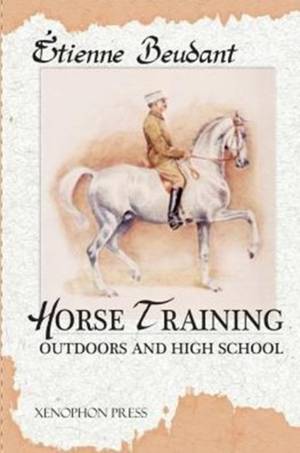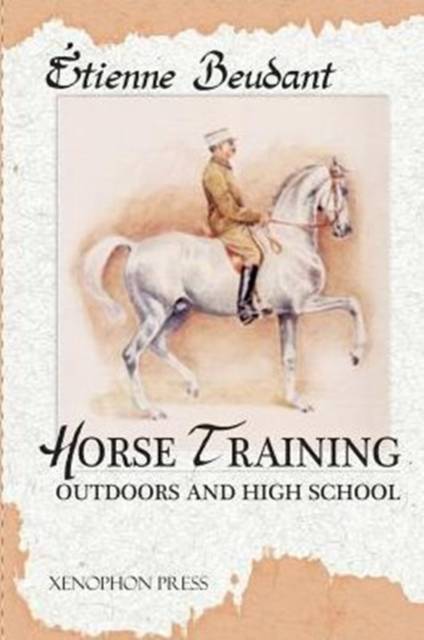
- Retrait gratuit dans votre magasin Club
- 7.000.000 titres dans notre catalogue
- Payer en toute sécurité
- Toujours un magasin près de chez vous
- Retrait gratuit dans votre magasin Club
- 7.000.0000 titres dans notre catalogue
- Payer en toute sécurité
- Toujours un magasin près de chez vous
Description
"My principle of dressage is to have the horse equally light to the spur and the hand and which does not allow the displacement of the rider's seat as an aid, and leaves the horse to move on his own once he has been given the correct position by the rider" for if we "Let the horse believe that he is our master, then he is our slave. Therein lays my opinion: the equestrian truth." -Étienne Beudant (1863-1949) For dressage enthusiasts who believe that there is no incompatibility between sport riding and academic riding, this is a veritable"Bible." Its author's Étienne Beudant (1863-1949) writings belong to the golden legend of the French riding. Gifted disciple of the illustrious Faverot de Kerbrech (himself a student of Baucher) Beudant won the admiration of his contemporaries. General Decarpentry called him "a whopping squire." Others called him the"Mozartof riding." Horse Training: Outdoors and High School includes general principles of dressage and even the philosophy of dressage) and some technical considerations that are good to consider long before making implementation. Finally, Beudant recounts important memories of horses (often very difficult ones) that he had trained or corrected or simply occasionally mounted. An important theme runs through the book and explains its title: the full compatibility or continuity between the correct work of an ordinary saddle horse and that of high school horse. Horse Training: Outdoors and High School provides an important historical bridge between Faverot de Kerbrech of the 19th century and the later writers of the 20th century, Nuno Oliveira and Albert Decarpentry. Reserve your advance reservation copy today. Expected to ship in November 2014. "The horse is the sole master of his forces; even with all of our vigor, by himself, the rider is powerless to increase the horse's forces. Therefore, it is for the horse to employ his forces in his own way, for himself to calculate the manner of that employment so as best to fulfill the demands of his rider. If the rider tries to do it all, the horse permits him to do so, but the horse merely drifts, and limits his efforts to those which the rider demands. On the contrary, if the horse knows that he must rely on himself, he uses himself completely, with all of his energy." -Étienne Beudant (1863-1949)
Spécifications
Parties prenantes
- Auteur(s) :
- Traducteur(s):
- Editeur:
Contenu
- Nombre de pages :
- 144
- Langue:
- Anglais
Caractéristiques
- EAN:
- 9780933316461
- Date de parution :
- 01-12-14
- Format:
- Livre broché
- Format numérique:
- Trade paperback (VS)
- Dimensions :
- 152 mm x 229 mm
- Poids :
- 199 g

Les avis
Nous publions uniquement les avis qui respectent les conditions requises. Consultez nos conditions pour les avis.






